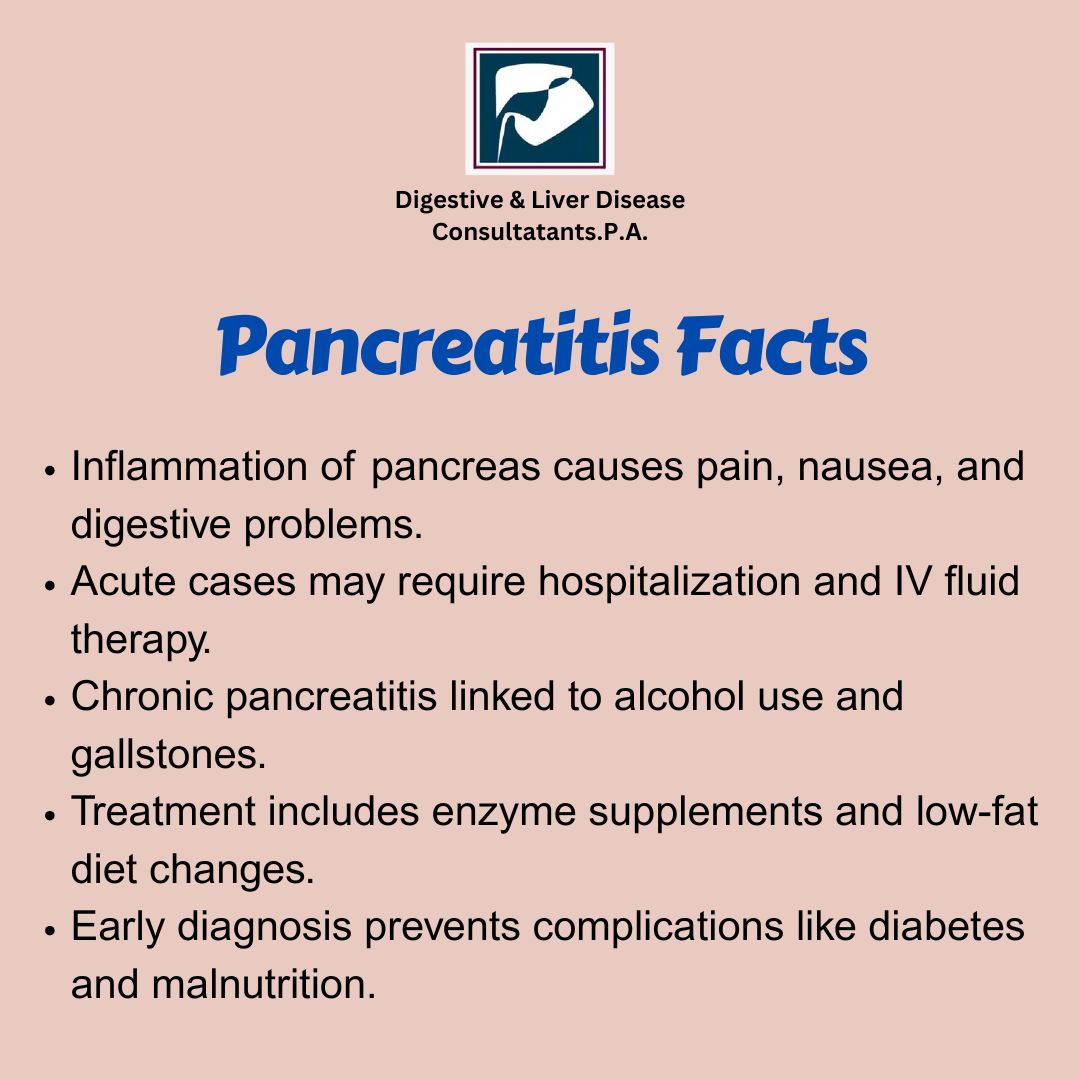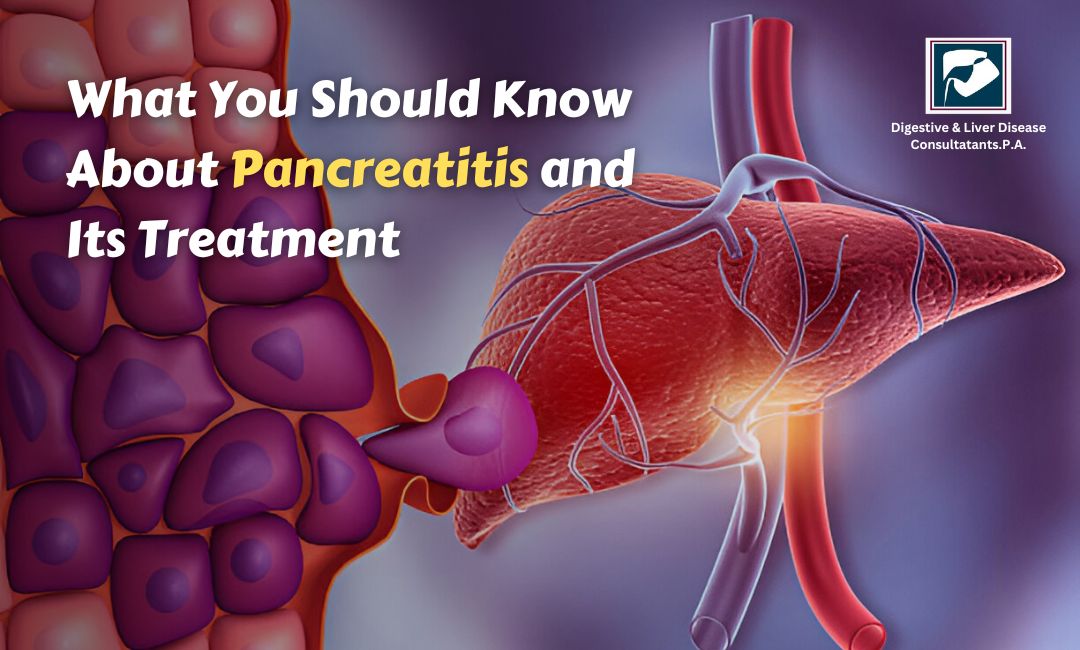Pancreatitis is a condition that affects the pancreas, an important organ located behind the stomach. The pancreas plays a vital role in digestion and blood sugar regulation by producing enzymes and hormones like insulin. When the pancreas becomes inflamed, it can cause serious discomfort and lead to complications if not treated properly. In this blog, we will explain what pancreatitis is, its symptoms, causes, and treatment options in simple and easy-to-understand language. This information is especially helpful for anyone looking to protect their digestive health and well-being.
What is Pancreatitis?
Pancreatitis refers to inflammation of the pancreas. This inflammation can be acute or chronic:
- Acute pancreatitis happens suddenly and usually lasts for a short time. It can cause severe abdominal pain and requires immediate medical attention.
- Chronic pancreatitis is a long-lasting condition where the inflammation persists or keeps coming back, leading to permanent damage to the pancreas.
Both forms of pancreatitis affect how the pancreas functions, impacting digestion and blood sugar regulation.

Symptoms of Pancreatitis
The symptoms of pancreatitis can vary depending on whether it is acute or chronic, but some common signs include:
- Severe pain in the upper abdomen that may radiate to the back
- Nausea and vomiting
- Fever and increased heart rate (in acute cases)
- Unintended weight loss
- Oily, foul-smelling stools (in chronic pancreatitis)
- Fatigue and weakness
If you experience sudden, severe abdominal pain, especially if it’s accompanied by vomiting or fever, it’s important to seek medical care promptly.
Causes of Pancreatitis
Several factors can trigger pancreatitis. The most common causes include:
- Gallstones: These small stones formed in the gallbladder can block the pancreatic duct, causing inflammation.
- Heavy alcohol use: Drinking large amounts of alcohol over time can irritate and damage the pancreas.
- Certain medications: Some medicines may cause pancreatitis as a side effect.
- High triglycerides: Elevated fat levels in the blood can lead to pancreatitis.
Infections and abdominal injury can also cause inflammation.
Sometimes, the exact cause remains unknown.
How is Pancreatitis Diagnosed?
Doctors use a combination of patient history, physical examination, and diagnostic tests to diagnose pancreatitis. Common tests include:
- Blood tests to check for elevated pancreatic enzymes (amylase and lipase)
- Imaging tests such as ultrasound, CT scan, or MRI to view the pancreas and surrounding organs
- Endoscopic ultrasound or ERCP (endoscopic retrograde cholangiopancreatography) to examine the pancreatic ducts
Accurate diagnosis is essential to determine the severity of pancreatitis and plan the right treatment.
Treatment Options for Pancreatitis
Treatment for pancreatitis depends on its type and severity. Here are some common approaches:
1. Hospital Care and Supportive Treatment (Mostly for Acute Pancreatitis)
- Hospitalization is often required for acute pancreatitis.
- Patients may receive IV fluids to prevent dehydration.
- Pain relief is managed with medications.
- Nutritional support is important; sometimes patients need to avoid eating for a few days to rest the pancreas.
In some cases, feeding through a tube or intravenously is necessary.
2. Treating the Underlying Cause
- If gallstones cause pancreatitis, surgery to remove the gallbladder or procedures to remove the stones might be recommended.
- For alcohol-related pancreatitis, abstaining from alcohol is critical for recovery and prevention of further damage.
- Managing high triglycerides or adjusting medications can also help.
3. Long-term Management of Chronic Pancreatitis
- Patients may require pancreatic enzyme supplements to aid digestion.
- Dietary changes, such as eating smaller meals low in fat, can reduce symptoms.
- Pain management and treating complications like diabetes or infections are part of ongoing care.
- Avoiding alcohol and smoking is crucial.
4. Surgery and Advanced Treatments
In severe cases, surgery or advanced endoscopic procedures may be needed to remove damaged tissue, drain cysts, or relieve duct obstructions.
Lifestyle Changes to Support Pancreatic Health
Taking care of your pancreas is vital for preventing pancreatitis and supporting recovery:
- Eat a balanced diet rich in fruits, vegetables, whole grains, and lean proteins.
- Limit fatty, fried, and processed foods.
- Avoid excessive alcohol consumption.
- Stay hydrated and maintain a healthy weight.
- Avoid smoking.
Digestive & Liver Disease Consultants, P.A. — Your Partner in Digestive Health
At Digestive & Liver Disease Consultants, P.A., we specialize in diagnosing and treating a wide range of digestive and liver diseases, including pancreatitis. Our team of experienced gastroenterologists provides personalized care based on the latest medical advances. We use state-of-the-art diagnostic tools and offer tailored treatment plans to help manage your condition and improve your quality of life.
If you or a loved one is experiencing symptoms of pancreatitis or other digestive problems, don’t hesitate to seek expert care. Early diagnosis and proper treatment are key to preventing complications.
Conclusion
Pancreatitis is a serious condition that affects the pancreas and can disrupt digestion and overall health. Recognizing the symptoms and understanding the causes are the first steps toward getting the right care. With proper treatment and lifestyle changes, many people with pancreatitis can manage their symptoms and lead healthier lives.
Experiencing persistent abdominal pain or pancreatitis symptoms? Contact Digestive & Liver Disease Consultants, P.A. for expert care and advanced treatment. Book your appointment today!






